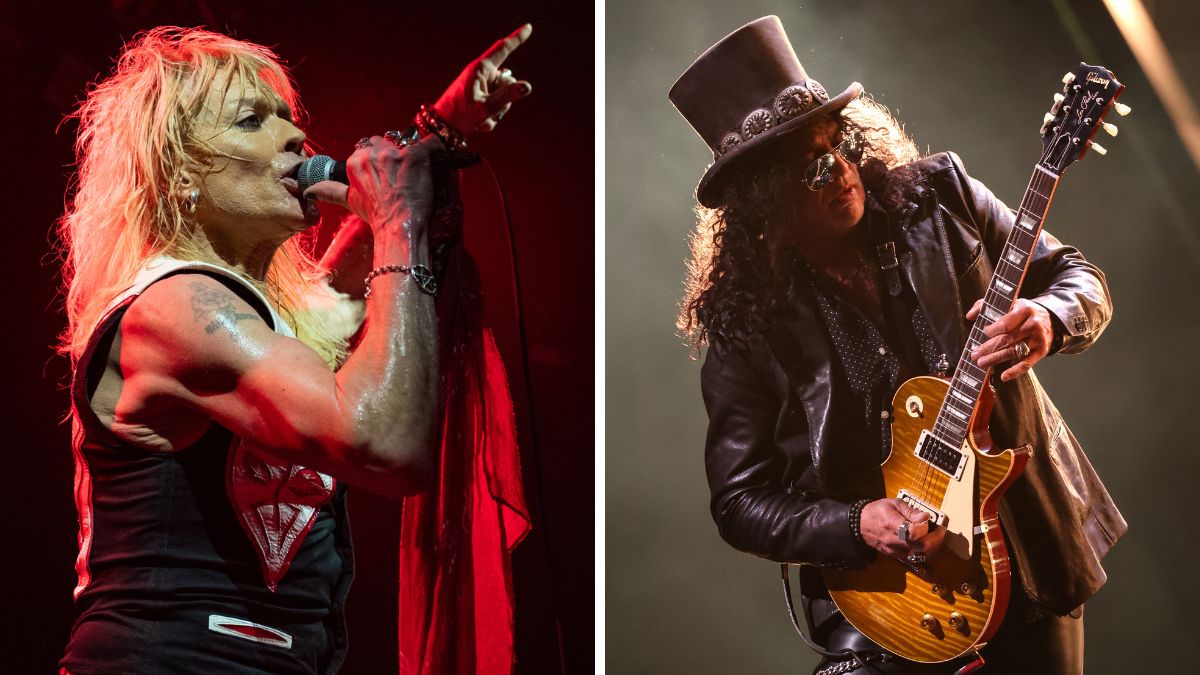Interview: Bassist Kevin Bebout of A New Rebel and Full Devil Jacket Talks Riffs, Writing and Roots
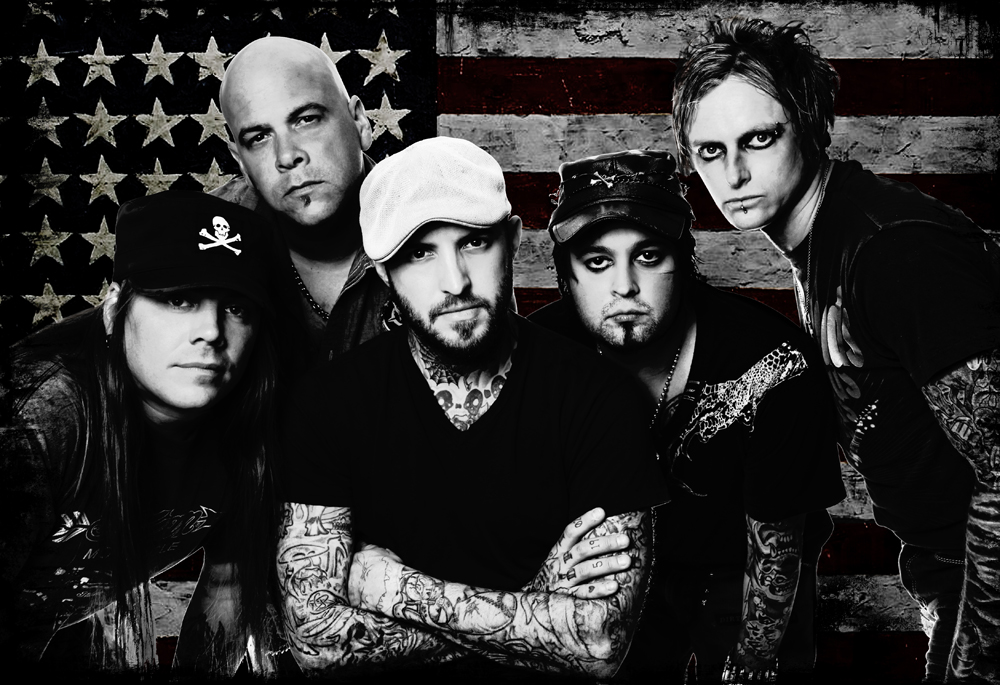
Bassist Kevin Bebout could easily host workshops about how to be a musician — that is, if he could fit it into his already hectic schedule.
While some guys find it so terribly difficult to show up on time for practice with one band, once a week, Bebout divides his time as follows: husband, father, project coordinator for Kramer guitars, songwriter and bass player in three — yes, three — active recording and performing bands.
Bebout’s first taste of success came with Full Devil Jacket. Signed to Def Jam Records, FDJ released the EP A Waxbox To Put Your Frankenstein Head In ... in 1999 and a self-titled debut album the following year. It came very close to Gold certification, and the band was also featured on the Gold-certified Scream 3 soundtrack.
FDJ toured with Creed, Nickelback and Type O Negative, performed at Woodstock ’99 and were part of the Tattoo the Earth tour, alongside Mudvayne, Slipknot, Sepultura, Slayer and Coal Chamber. After a decade-long separation, they regrouped last year and are working on new material.
By day, Bebout, who has been with Gibson Guitars for a total of nine years, three of them with Kramer, oversees design and coordinates artist relations. In short, he says, “I wear 85 hats. It’s fantastic because I can devote 24 hours a day, seven days a week, to music and musicians. I get to do what I love and never be unhappy.” He designed the Kramer D1 bass; you can see him holding the D2 prototype in the photo below.
One of his bands, A New Rebel, released their debut EP late last year. That group, which includes the FDJ lineup, also features Saving Abel guitarist Jason Null. They’re in the process of booking a 2012 itinerary, and with this project front and center, Bebout spoke about the balancing act that is his life, how each project fulfills a different yet similar musical landscape, and how he makes it all work.
Let’s talk about all of your current projects. You have a songwriting group, Holy Crap is gigging and recording, A New Rebel just released their debut EP and Full Devil Jacket has reunited.
Get The Pick Newsletter
All the latest guitar news, interviews, lessons, reviews, deals and more, direct to your inbox!
The Southern Dirt Coalition is made up of a large group of musicians and songwriters who get together specifically to write and work outside of their genres. Holy Crap came about after Full Devil Jacket ended. I started working at Epiphone and I wasn’t looking for another band, but Tyson, our guitar player, asked me to come over and jam with them. One night, I stopped over there and we started writing cool, funny songs. I started showing up every week and it turned into doing some shows. It’s a “humor-core” band. We do it for fun, it’s nothing serious, the genres don’t matter. We’ve been together a little over three years now, and that’s the band that got me back into playing.
What brought Full Devil Jacket back together?
It all revolves around [original guitarist] Mike Reaves. When we found out Mike had cancer, we decided to get back together and do a show with him to help raise money for his medical bills. We all got together to practice, and after ten years, we hadn’t missed a beat. Josh [Brown, vocalist]’s band, Day of Fire, was on hiatus and Jonathan [Montoya, guitarist] was coming out of Saliva at that same time, so right after that benefit, we had another writing session and tried to do a couple more shows with Mike. As his cancer progressed, it made it increasingly difficult for him to do rehearsals. He passed away last summer.
How did this lead to A New Rebel?
Full Devil Jacket parted ways for a while, and Josh and Jonathan started A New Rebel with Jason. Keith [Foster, drums] and I came into that band a week before our last show with Mike. Jason was in town and wanted to come by and jam with Full Devil Jacket. We wrote two songs, “Running In Circles” and “We Are,” and it looked like we had a good lineup for a band. We went into Sound Kitchen, Skidd Mills’ studio, the following week and laid down those tracks to go with three other songs that A New Rebel already had. That became the five-song EP, which is doing really well on iTunes. We decided to go with a digital download, rather than a hard-copy CD. You can hit as wide an audience digitally, it cuts down on costs, and the sound quality between a CD and MP3 is virtually no different these days, so it’s easier for everybody to get the EP that way.
What’s the status for Full Devil Jacket?
We’re getting new material together. I get to play with Jonathan, Josh and Foster in two bands now and there’s never a dull moment. We’re writing, revamping some of the old material and pulling back a few unreleased songs we had for the second album that was never completed. We had a lot of songs done and we’re picking our favorites and favorite pieces. We have some awesome riffs and parts and it would be a shame to not bring them to light, but mostly we’re concentrating on new material. We’re going to make some damned good music.
All three of your bands are hard rock. Does that allow for consistency in technique or are there certain nuances you have to step up for each one?
Full Devil Jacket and A New Rebel are along the same lines. My job as the bass player is to hold down the foundation and keep it as simple as possible for hard rock bands. Holy Crap is no holds barred. I use pop, slap, funk, picking — that’s the challenge. I’ve played hard rock for a long time, but Holy Crap made me diverse. I had never done slap technique, so it’s been a massive learning experience. I pushed myself to learn scales and technique more during the past two years than in my ten years as a metal player.
You play bass and guitar. How long have you been a musician? What got you started?
I grew up in southern Illinois and I could barely pick up the college station in Evansville to hear heavy music. I could hear Ratt and Poison on the local station, but not hardcore. I loved the energy of hardcore music. I felt better when I listened to it. The energy level attracted me.
While I was growing up, there was a period when I stayed at my uncle’s house on weekends, and he’d listen to Creedence Clearwater Revival, Willie Nelson and Frank Zappa, so I was introduced to that music through him. My first guitar was a Cort, a Fender copy that I got when I was 16 and played for a few months, long enough to make my parents mad because I was too loud. I played horribly, I was out of tune, and I stopped for a couple of years. I moved to Jackson, Tennessee, when I was 18 or 19 and I started really learning how to play. I got a Charvel and a Crate 2x12 combo, and guys who were better than me were everywhere.
West Tennessee is full of great players. It was the typical story: My buddy’s band needed a bass player, so I switched to bass. My favorite musician at the time was Steve Harris of Iron Maiden, so I think I was destined to play bass. I was a huge Cliff Burton fan, too. I got a Peavey amp and bass and it was more fun than the guitar. I met Keith Foster around that time. Full Devil Jacket started out as the Voodoo Hippies, but Keith had other commitments, so we split. He came back and that’s when we changed the name of the band.
Full Devil Jacket and A New Rebel are two-guitar bands. Where does the bass fit in?
With two guitar players, you have to keep everything as simple as possible, keep the rhythm section in the pocket and not step on anybody. The biggest bands with the best songs stay out of each other's way, and with Keith, that’s so easy to do. For me, it’s about playing songs that people want to hear. I know I’m doing my job when I look at the audience and see people enjoying the music. If guys are worried about getting attention for what they’re doing, they’re in a band for the wrong reason. It’s about the song. If you write a great song, that says everything.
As a musician who plays in three bands and is involved in a songwriters’ project, what are some writing and practice tips you can offer to other musicians?
If you only listen to one style of music, you get tunnel vision. It’s important to branch out and appreciate other styles; otherwise, you’re missing out on tons of ways to bring things you never thought about into your playing. Not necessarily a sweep down the neck, but maybe two cool, tiny notes in one lick on one song that you’d never learn if you don’t diversify. You have to branch out. I listen to A Perfect Circle, Foxy Shazam and Lamb Of God. I switch gears constantly, soak up styles and it comes out when I’m writing. With Holy Crap, I had no idea what I was getting into. We all wanted to do something different and not worry about commercial songs.
It’s a challenge to make riffs fit together, and it happened in rehearsal. I had to woodshed for that band. I try to give myself half an hour to an hour a day to practice, but some days it’s 15 minutes at a time. I don’t focus on theory, just whatever comes into my head. I let my fingers move. I don’t want to do regimented practice because I’m the most inconsistent person in the world. I play guitar and bass, I’m a decent rhythm player and I’m trying to be better. Playing guitar impacts my bass playing because it makes me look at both sides of songwriting. The attack is different. You don’t play as many notes on bass.
— Alison Richter
Alison Richter interviews artists, producers, engineers and other music industry professionals for print and online publications. Read more of her interviews right here.
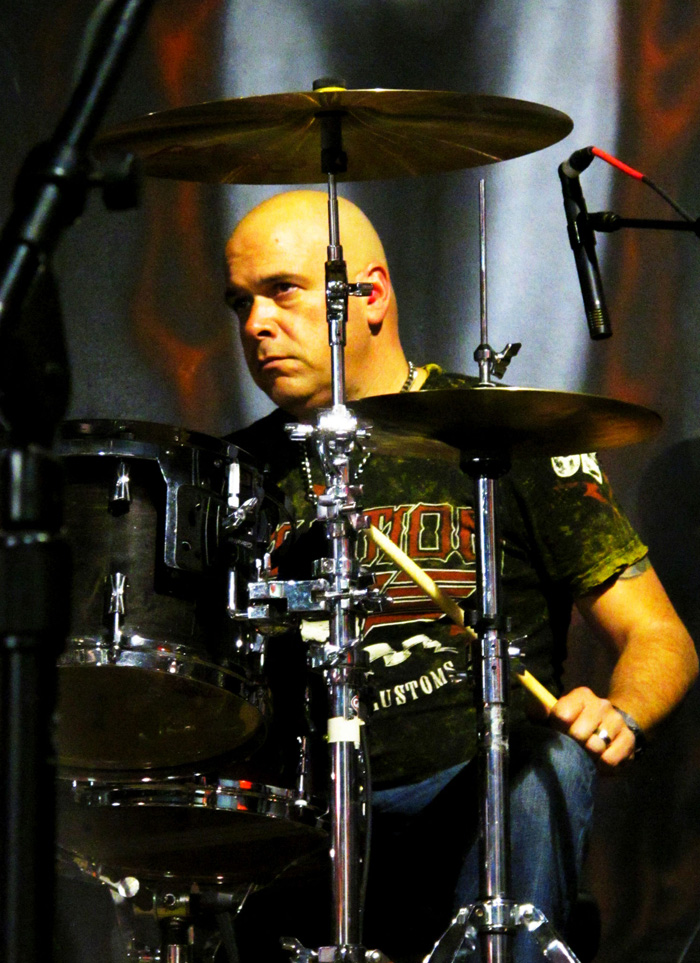
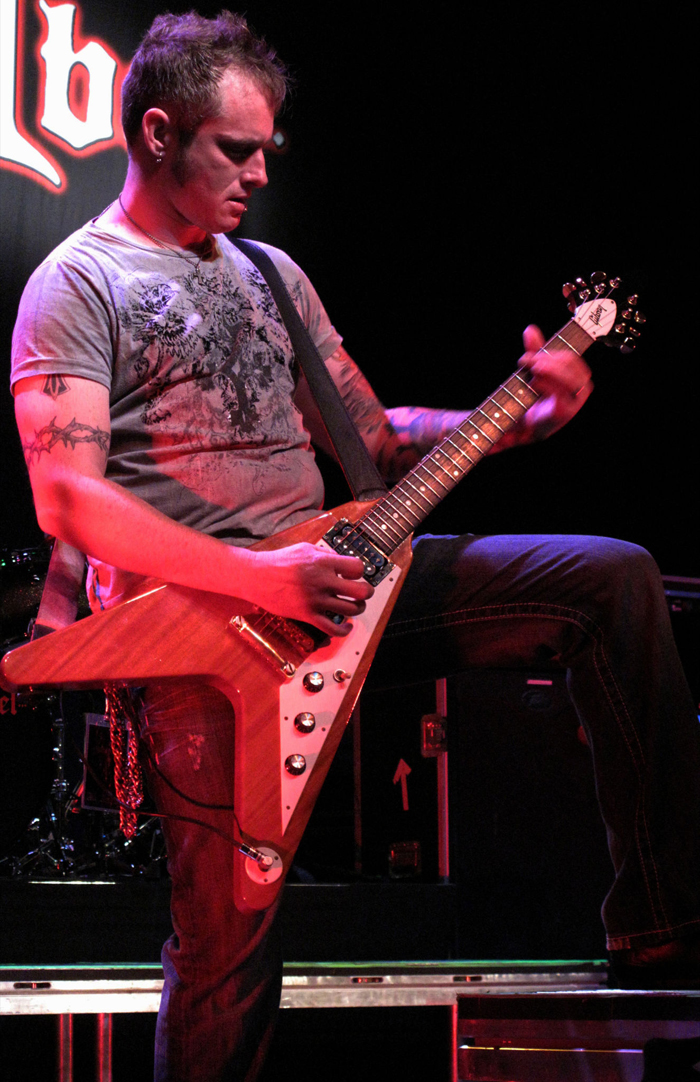
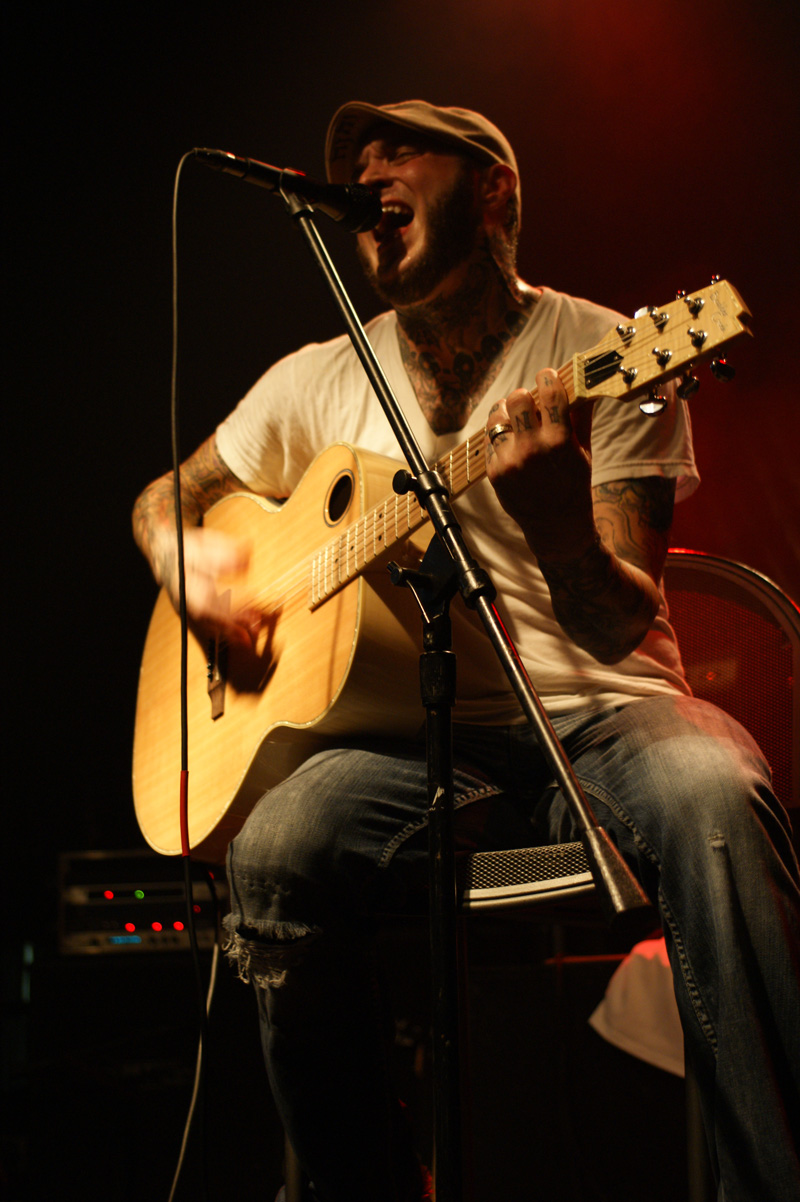
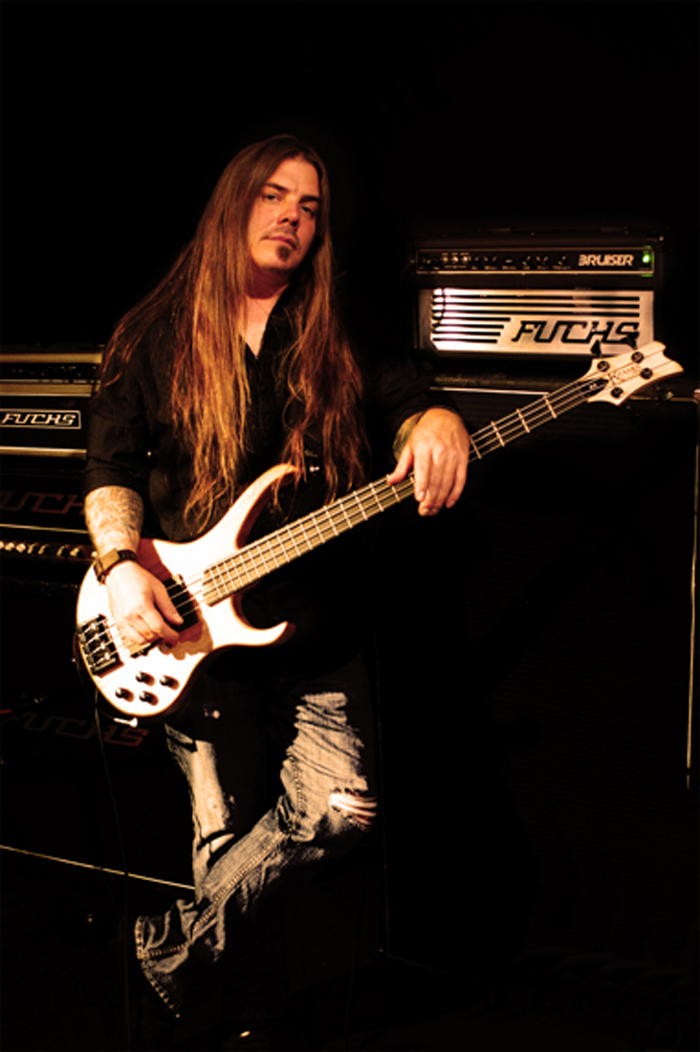
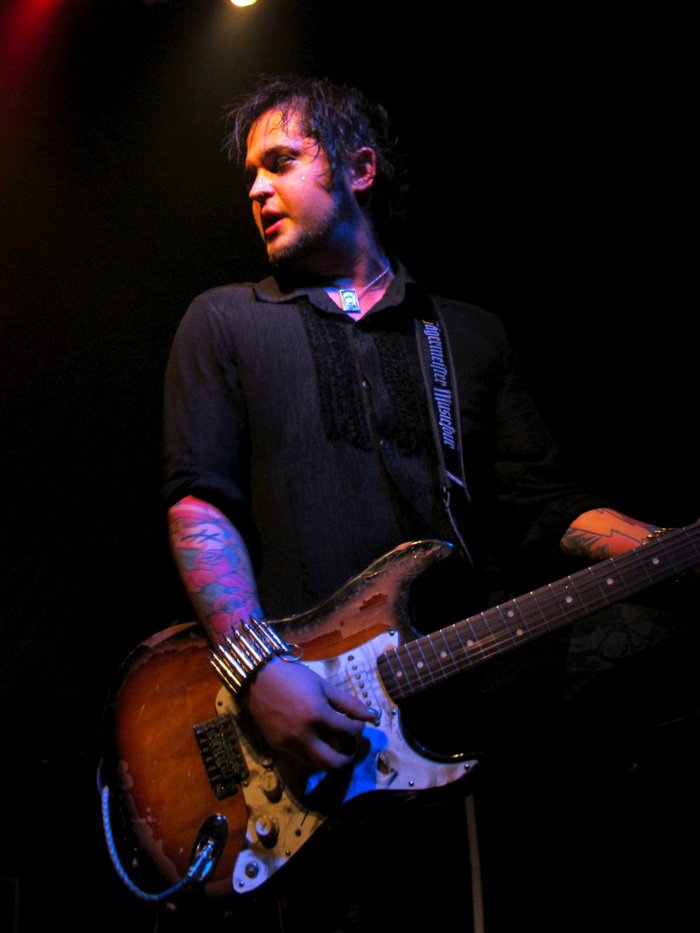
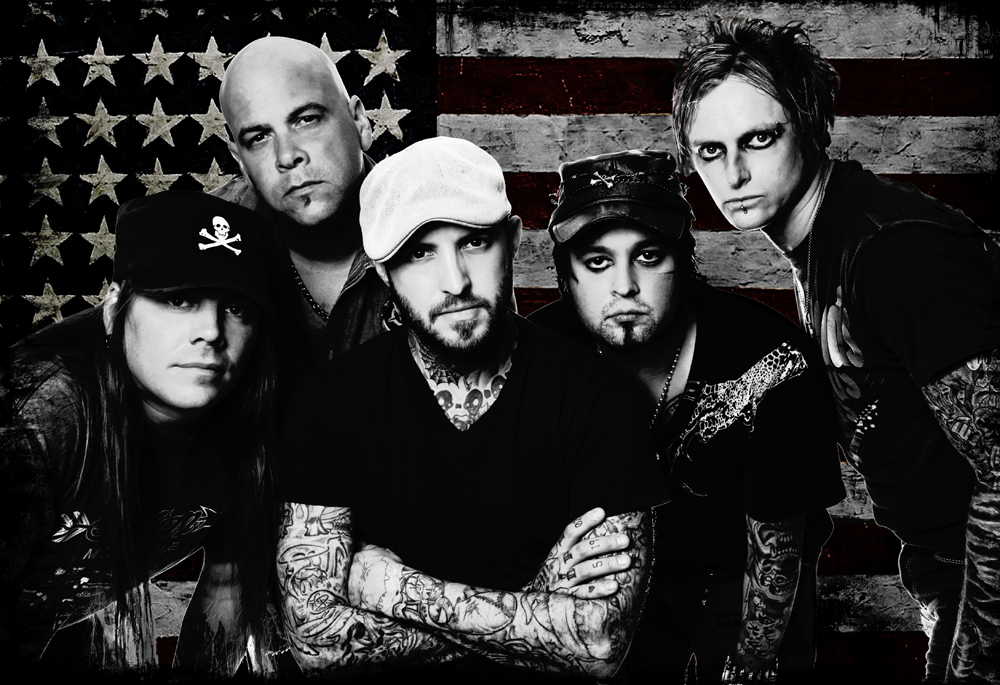
Alison Richter is a seasoned journalist who interviews musicians, producers, engineers, and other industry professionals, and covers mental health issues for GuitarWorld.com. Writing credits include a wide range of publications, including GuitarWorld.com, MusicRadar.com, Bass Player, TNAG Connoisseur, Reverb, Music Industry News, Acoustic, Drummer, Guitar.com, Gearphoria, She Shreds, Guitar Girl, and Collectible Guitar.
“I asked him to get me four bass strings because I only had a $29 guitar from Sears”: Bootsy Collins is one of the all-time bass greats, but he started out on guitar. Here’s the sole reason why he switched
“I got that bass for $50 off this coke dealer. I don’t know what Jaco did to it, but he totally messed up the insides!” How Cro-Mags’ Harley Flanagan went from buying a Jaco Pastorius bass on the street to fronting one of hardcore’s most influential bands

![A black-and-white action shot of Sergeant Thunderhoof perform live: [from left] Mark Sayer, Dan Flitcroft, Jim Camp and Josh Gallop](https://cdn.mos.cms.futurecdn.net/am3UhJbsxAE239XRRZ8zC8.jpg)








